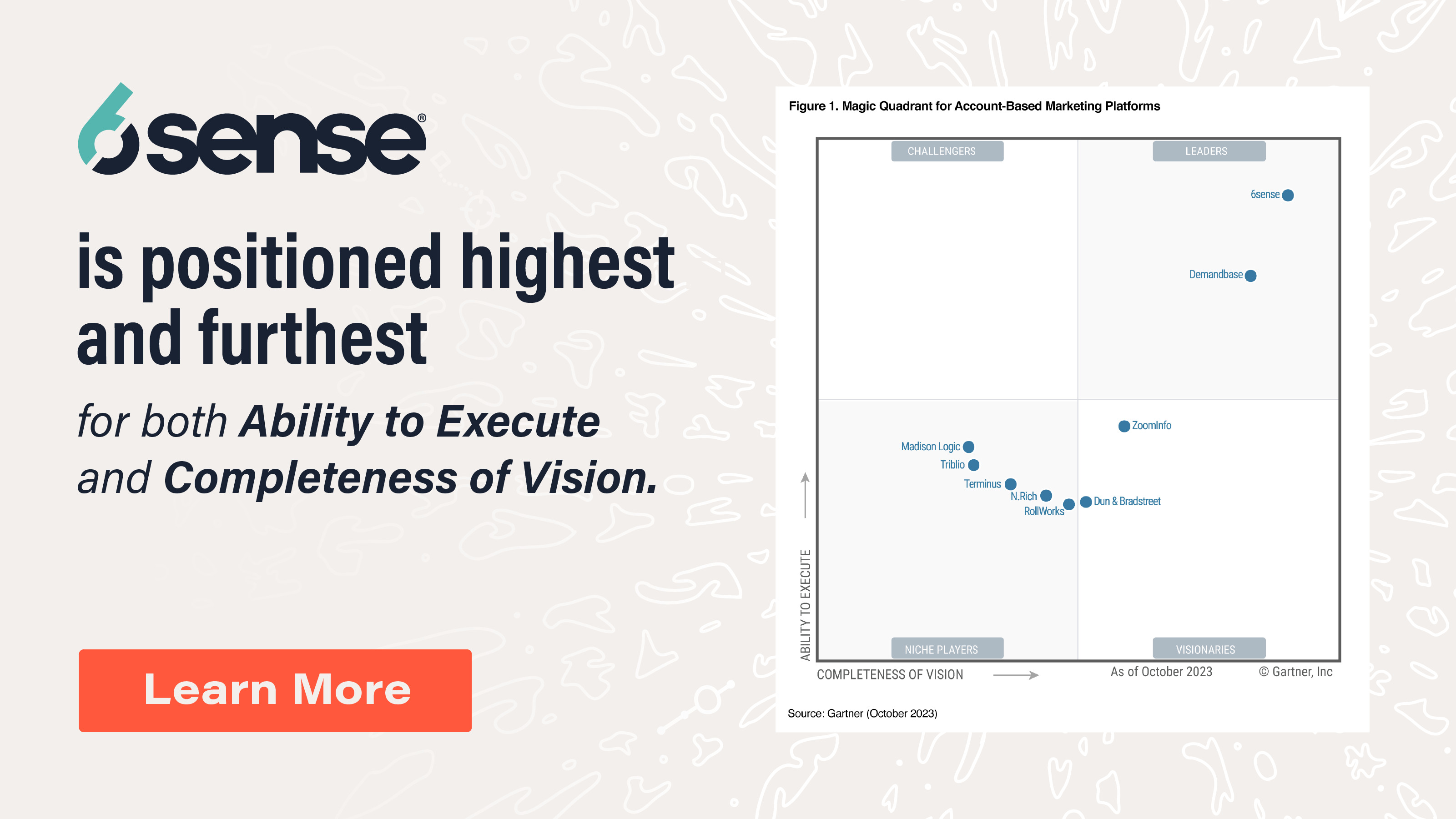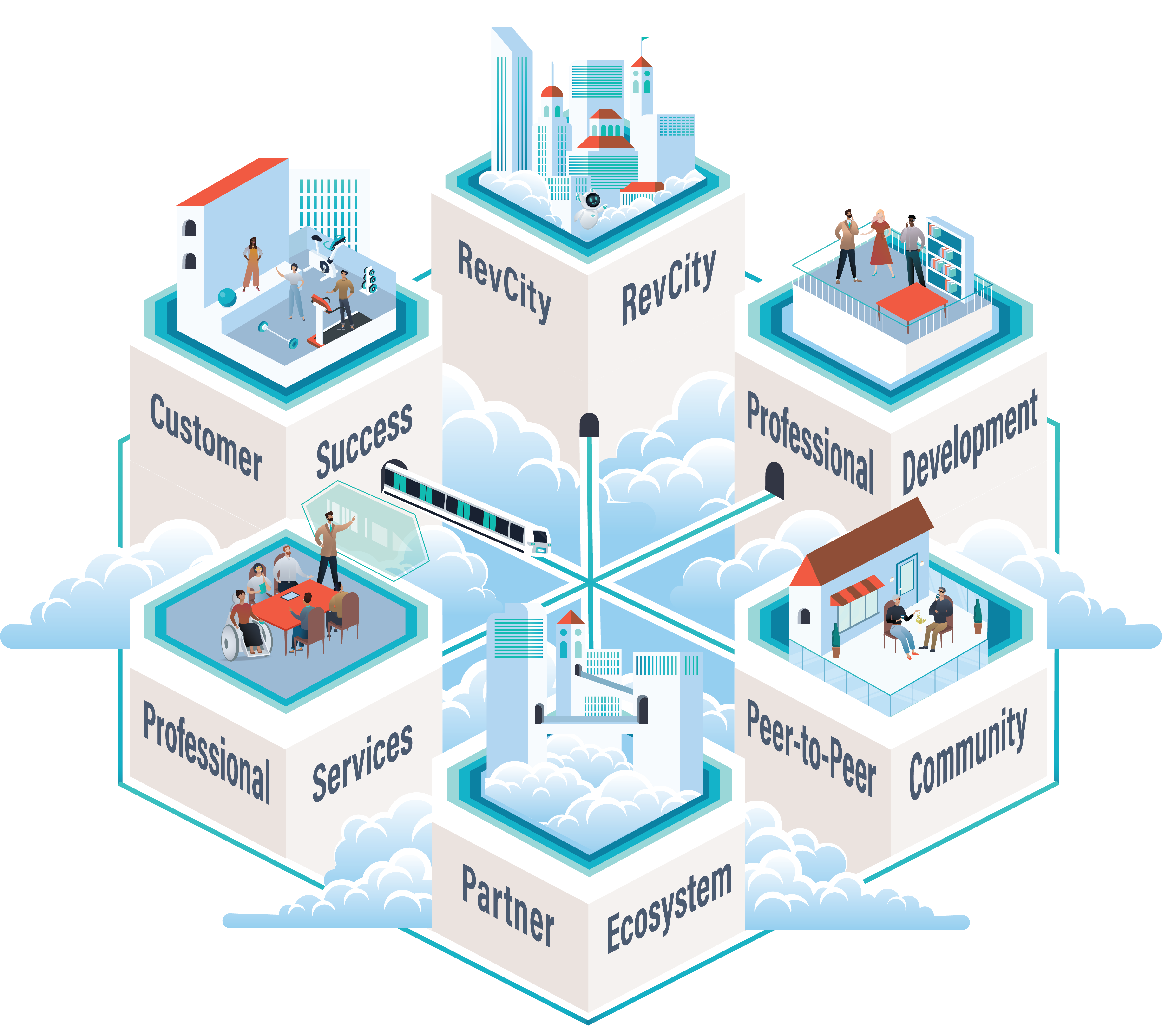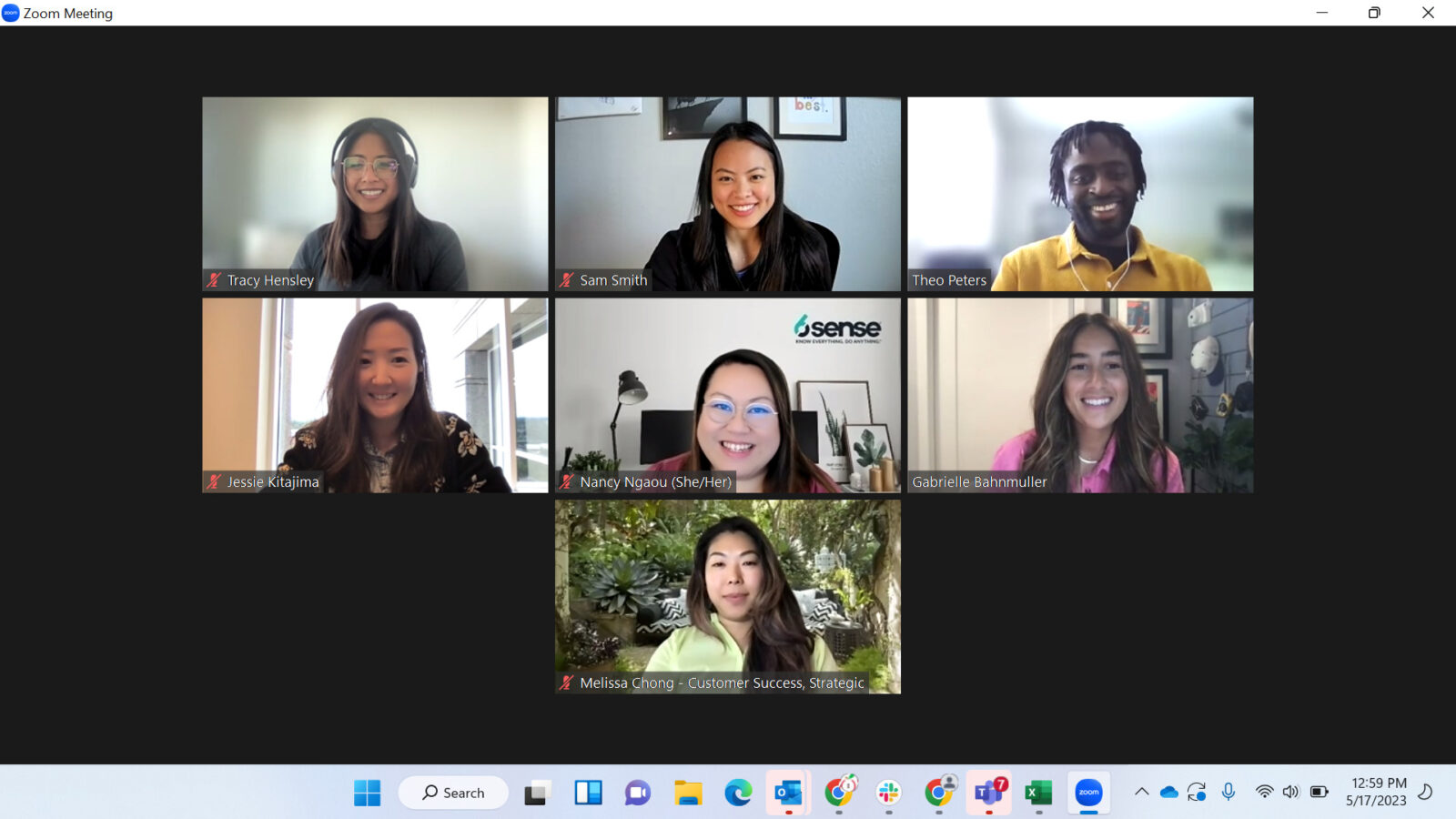In recognition of AAPI Heritage Month, the members of the AAPI Employee Resource Group (ERG) at 6sense partnered with San Francisco School Fund to share stories and insights about their careers and backgrounds with students. They also took questions from the kids, many of whom had Asian-American and Pacific Islander backgrounds — though plenty of allies joined their friends to learn.
We also had an internal roundtable discussion with AAPI ERG members to ask about:
- Their experiences as AAPI individuals in the workplace
- What AAPI Heritage Month means to them, and
- Ways allies can take AAPI Heritage Month as an opportunity for education and appreciation
Participants
- Gabrielle Bahnmuller, Senior Manager, People Partner
- Nancy Ngaou, People Partner
- Tracy Hensley, Senior Product Marketing Manager
- Theo Peters, Manager, FP&A
- Jessie Kitajima, Business Value Consultant
- Melissa Chong, Principal Customer Success Manager, Strategic
Here are the key takeaways:
Being true to oneself and embracing one’s cultural heritage is important for personal and professional success.
Participants discussed the importance of embracing their cultural heritage while navigating their professional careers. They emphasized the need to be true to themselves and not be constrained by societal expectations or stereotypes. For example, communication style differences can lead to misunderstandings and biases, especially for Asian women, who may be perceived as aggressive when speaking up.
“I have a very strong, outspoken personality, and growing up I was told to not talk so much, to not speak my mind, I should behave in a certain way — and I’ve never followed it. And I attribute my personal professional success to not caring about what others want me to be,” Melissa said.
Jessie said she’s experienced biases in the workplace regarding communication style, but has chosen to speak up and address issues directly while maintaining a level-headed approach. She also spoke of her experience at previous jobs, where she didn’t feel like she was taken seriously or her expertise wasn’t recognized due to looking young.
Representation matters.
Seeing your identity represented in leadership, and having supportive leadership in general, makes a difference in achieving personal and professional success.
“What I think is really important for success is that we have someone [of AAPI heritage] in the C-level,” Jessie shared. “Our head of People is an Asian woman. And so I think that is huge in terms of representation. And the leaders here, no matter what conversation I’m in, I’m able to say ‘here’s the support that I need,’ and then our leaders ask, ‘What can we do? How do I support you?’ So, that’s been a really positive experience for me.”
Open-mindedness and education are key for allies and AAPI community members alike.
Roundtable participants highlighted the importance of open-mindedness and education for both allies and AAPI community members. They encouraged asking questions, learning more about different cultures, and understanding the experiences that shape others.
Tracy shared, “I think what’s important is the ability to keep an open mind to educate yourself. There are a lot of Asian cultures that I’m not familiar with myself. And so asking questions and being open to learning opportunities is really important to be a good ally, and to be a good AAPI community member.”
Celebrating and sharing AAPI heritage fosters connections and understanding.
The participants discussed various ways they celebrate and share their AAPI heritage, including cooking traditional dishes, sharing tidbits of history, and exploring pop culture. These activities not only help them connect with their own heritage, but also allow them to engage others and foster understanding.
Melissa shared her experience of bringing traditional Malaysian food to the office, which sparked conversations about cultural heritage and similarities among coworkers. Tracy also mentioned sharing historical facts and engaging in pop culture to pique others’ interest in AAPI heritage. Through these activities, participants can create connections, promote understanding, and celebrate their diverse backgrounds.
Advice for young AAPI professionals.
Melissa, who has experience with mentoring, offered this powerful advice for young AAPI-identified people:
“I attribute my personal, professional success to not caring about what others want me to be. Be polite and respectful, but you’ve got to be true to yourself, your personality, who you are. You might not look like somebody that is outspoken, but just go do it.
“I’ve lived in Europe, Asia, and now America. I strongly encourage you to travel and learn from other cultures and look at how you can adapt and be more of a global citizen, and not just get stuck being told this is how you look, this is your heritage, be this way. Be who you want to be, and choose your values and use that as your compass.”
Allies can observe AAPI Heritage Month, too.
Here are the 6sense AAPI ERG’s recommendations for ways you can help celebrate AAPI Heritage Month and support AAPI teammates year-round:
- Learn about AAPI heritage and culture
- Attend AAPI heritage events
- Support AAPI-owned businesses
- Read books, watch films, and listen to music by AAPI creators
- Listen to podcasts with AAPI hosts
- Learn from AAPI leaders, like Rafidah Aziz, an authority in global trade
- Connect with AAPI colleagues and peers
- Join AAPI ERG activities and conversations
- Amplify AAPI voices in the workplace
- Celebrate AAPI accomplishments
Donate to AAPI-focused organizations (such as Asian Mental Health Collective, Stop AAPI Hate, and the Eddie Akiau Foundation)



